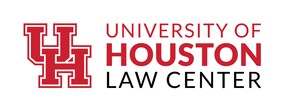HOUSTON, Dec. 21, 2020 /PRNewswire/ -- The COVID-19 pandemic has wreaked havoc on not only public health and the economy, but according to University of Houston Law Center Assistant Professor Valerie Gutmann Koch, it has also raised large legal and ethical issues.
Koch, co-director of the Law Center's Health Law & Policy Institute, has been extensively studying the effects and legal implications of the pandemic. Several of her articles have been published in scholarly journals and by news organizations.
Some of the biggest legal challenges being raised involve tensions between individual autonomy such as stay-at-home orders and mask mandates and societal justice, according to Koch. Lawmakers and scholars are struggling to balance these interests in ways that respect individual liberties, while also protecting communities and vulnerable individuals.
"We are seeing the inadequacies of rules crafted to address a theoretical public health emergency to address the real-world implications of the pandemic," Koch said. "Significantly, the COVID-19 pandemic has underscored major questions of justice and equality. We have also seen already-existing inequalities exacerbated by the application of current legal rules and policies in response to the pandemic."
Koch is a scholar of bioethics, public policy and health law, and concentrates on how medical and technological advances have informed and sometimes transformed various legal areas. Her studies and research also identify ways in which law and policy are or are not equipped to address changes in technology and practice.
Aligning with her area of specialization, Koch also raised the concern around malpractice in the time of COVID-19. In an article in Bill of Health, a news entity powered by Harvard Law School, she argues that enacting pandemic guidelines is the right response to COVID-19, not changing malpractice laws. Citing from her research, she makes the case that current malpractice standards were created to adapt to changing times, which include public health emergencies.
Koch noted in a separate article that the policy in New York City, where the pandemic hit hardest first, fell short. This included failure to trigger transparent and consistent guidelines for scarce resource allocation in the form of a crisis standard of care plan.
Many of the questions raised during the pandemic aren't necessarily new, including those related to who receives scarce resources in emergencies or how health care providers will be encouraged to follow changing rules and protocols. As a result, health law and policy have had to adapt to the changing nature of the pandemic.
Koch's findings show that the pandemic has exposed a need for even more expertise in public health law and a plan to be better prepared to respond to future health emergencies. Law students and practicing attorneys who specialize in malpractice law should be aware of state and federal efforts to extend liability protections to health care providers who provide medical care and engage in scarce resource allocation during the pandemic.
"Looking forward, we must use what we have learned during the COVID-19 pandemic to ensure evidence-based policies crafted from thoughtful deliberation and principles of inclusion and equity," Koch said.
UHLC media contacts: Carrie Anna Criado, UH Law Center Assistant Dean of Communications and Marketing, 713-743-2184, [email protected]; Elena Hawthorne, Assistant Director of Communications and Marketing, 713-743-1125, [email protected]; and John Brannen, Media Relations Rep, 713-743-3055, [email protected].
About the University of Houston Law Center
The University of Houston Law Center (UHLC) is a dynamic, top tier law school located in the nation's 4th largest city. UHLC's Health Law, Intellectual Property Law, and Part-time programs rank in the U.S. News Top 10. It awards Doctor of Jurisprudence (J.D.) and Master of Laws (LL.M.) degrees, through its academic branch, the College of Law. The Law Center is more than just a law school. It is a powerful hub of intellectual activity with more than 11 centers and institutes which fuel its educational mission and national reputation. UHLC is fully accredited by the American Bar Association and is a member of the Association of American Law Schools.
About the University of Houston
The University of Houston is a Carnegie-designated Tier One public research university recognized with a Phi Beta Kappa chapter for excellence in undergraduate education. UH serves the globally competitive Houston and Gulf Coast Region by providing world-class faculty, experiential learning and strategic industry partnerships. Located in the nation's fourth-largest city and one of the most ethnically and culturally diverse regions in the country, UH is a federally designated Hispanic- and Asian-American-Serving institution with enrollment of more than 47,000 students.
SOURCE University of Houston Law Center

Related Links
WANT YOUR COMPANY'S NEWS FEATURED ON PRNEWSWIRE.COM?
Newsrooms &
Influencers
Digital Media
Outlets
Journalists
Opted In



Share this article